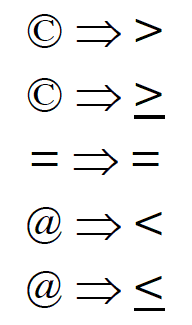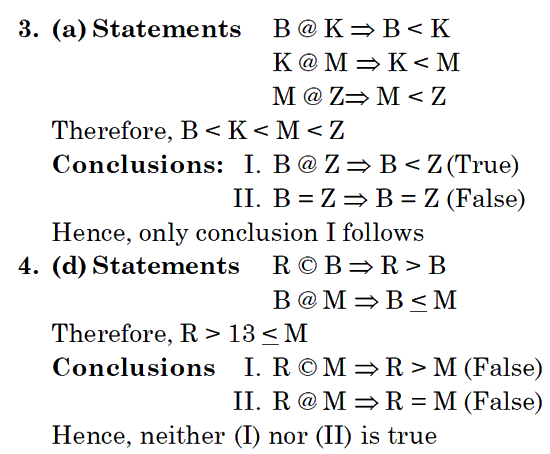(Online Course) CSAT Paper - II : Logical Reasoning & Analytical Ability: Statement & Conclusions
Logical Reasoning & Analytical Ability
Statement & Conclusions
‘Conclusion’ is a fact that can be truly inferred fromthe contents of a given sentence. There may be questions in the CSAT that may consist of a statement or a set of statements, followed by certain inference s) based on the facts of statements. Here candidates are required to approach the questions for solution from a different angle. This approach basically emphasises the need for being more systematic and logical in drawing inferences. Therefore, consequent effect of a statement has to be analysed before reaching the correct conclusion(s).
Types of Questions: There may be two types of questions which may be asked in CSAT.
Type 1 Logical Conclusions
Here statement and conclusions are based on logical conclusions.
Example 1
Statement: These apples are too expensive to be bad.
Conclusions I. When apples are in short supply, the prices go up.
II. The higher the selling price, the superior is the quality of the
commodity.
Solution. According to the statement quality is directly proportional to
the price. Hence, higher the selling price, the superior is the quality of the
commodity.
Example 2
Statements: In a one day cricket match the total runs made by a team
were 200, out of which 160 runs were mode by spinners.
Conclusions I. 80 % of the team consists of spinners.
II. The opening batsman were spinners.
Solution. Team may consists or the number of spinners more or less than
given in conclusion 1. Hence, conclusion I does not follow. Secondly, it is not
known from the statement that opening batsman were spinners. Hence, conclusions
II does not follow.
Type 2 Mathematical Conclusions
Such type of questions are quite similar to mathematical operations.
Example (Q. Nos. 3 to 5) In the following questions, the symbols ©, ©.@ @ = are used as follows
A © B means A > B
A © B means A = B
A = B means A = B
A @ B means A < B
A @ B means A < B
Now in each of the following questions assuming three statements to be true, state which of the two conclusions I and II given below them is definitely true.
Give answer (a) if only I is true; give answer (b) if only II is true;
give answer (c) if either I or II is true; give
answer (d) if neither I nor II is true and give answer.
3. Statements: B @ K, K @ M, M @ Z
Conclusions: I. B @ Z
II. B = Z
4. Statements: R © B, B @ M
Conclusions: I. R © M
II. R = M,
5. Statements: M @ R, Q ©P, P = R
Conclusions: I. M @ P
II. M= P
Solutions. Substituting real meaning to given symbols, we have,



